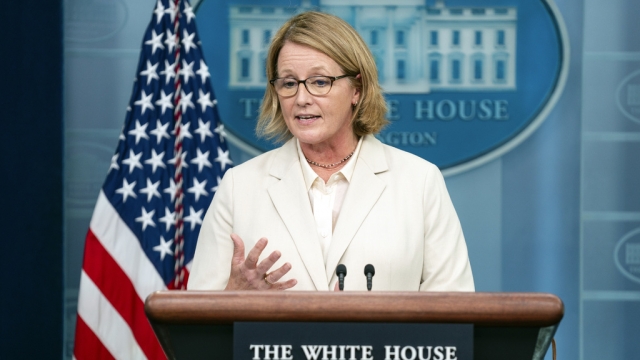Even though hurricane season is just getting started, the Federal Emergency Management Agency says it's already running out of money.
Last week, FEMA chief Deanne Criswell warned that the relief fund was expected to be depleted by mid-late August, but during an interview with CBS on Sunday morning, Criswell said "the depletion of our fund now is pushed into the middle of September."
According to the National Oceanic and Atmospheric Administration, there have already been 15 weather-related disasters that have exceeded $1 billion in damage this year, which is a new record for the U.S.
During a briefing, Criswell stated FEMA has adequate funding for ongoing response, factoring in events like the Maui wildfires, but without additional congressional funding, recovery projects might be postponed to next year.
"And so what we will do is we will continue to push we will push projects, recovery projects into the next fiscal year. So we always have enough money to support any of the immediate life saving needs. So we will take measures to ensure that there is always going to be enough funding to continue to support immediate responses to these types of severe weather events," said Criswell.
SEE MORE: US hit by a record number of billion-dollar disasters so far this year
Criswell says Congress needs to pass the $12 billion funding bill that President Joe Biden requested to avoid a lapse, but that still may not be enough.
"That dollar amount may need to go up as we go into next fiscal year, and what we’re going to need to do to be able to continue to respond to the increased number of events that are happening across the nation," said Criswell.
FEMA says they will employ its Immediate Needs Funding rule when the disaster relief fund hits a "critical threshold."
This strategy prioritizes crucial ongoing disaster operations and sets aside funds for initial response and recovery in the face of a significant event.
However, the agency's resources are being strained by the escalating year-round disasters driven by the climate change crisis.
The shortfall also comes at a time when Southern California is dealing with its first tropical storm in 84 years.
"California is a very capable state with a lot of resources, but we have also moved in additional resources just in case it exceeds capability, so we can quickly come in and support if asked," said Criswell.
Passing more funding for FEMA will be a top priority when lawmakers head back to Washington in early September. Congress will have until Sept. 30 to pass a number of spending bills, including more disaster relief funding, in order to avert a government shutdown.
While the Atlantic hurricane season spans from Jun. to Nov., its peak hits on Sept 10. The highest tropical activity occurs between mid-August and mid-October, according to NOAA.
Trending stories at Scrippsnews.com



